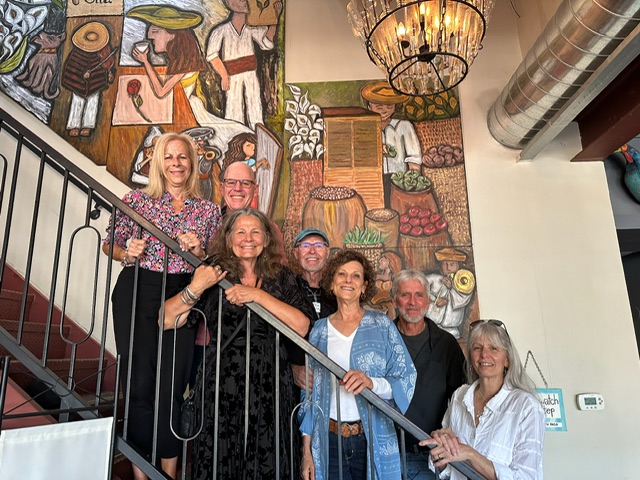Loneliness isn’t just an emotion — it’s a growing public health crisis. A 2023 Gallup Poll found that one in four people around the world report significant loneliness, while another 27 percent say they feel at least a little lonely. And surprisingly, it’s not just older adults who are affected. The highest rates of loneliness are reported by young adults aged 19 to 29.
But mental health professionals agree: loneliness is not inevitable. Backed by research and real-world experience, organizations like the C.G. Jung Center in Evanston, Illinois, have developed effective strategies to help individuals reconnect — with themselves, their communities, and the world around them.
Here are five time-tested practices, backed by the American Psychological Association, to combat loneliness.
1. Reach Out
One lasting lesson from the pandemic: we’re often just a keypad away from connection. Whether it’s a call, a text, or a video chat, reaching out — even briefly — can remind us we’re not alone. Prefer analog? A handwritten postcard or letter can create moments of connection that linger long after they’re received.
2. Get Outside
Nature and public spaces have always played a role in fostering belonging. A walk through a local park or neighborhood increases your chances of spontaneous interaction — an old friend you bump into, or a stranger’s smile that reminds you you’re part of something larger.
3. Join Something
Membership in civic and spiritual organizations has declined dramatically in recent years, but a sense of belonging often begins with simply showing up. Whether it’s a book club, a local class, a community garden, or an online meetup, shared interests can form the basis for meaningful connection.
4. Engage with Your Surroundings
Solitude doesn’t have to mean loneliness. Reading a book is a conversation with an author. Working with your hands — painting, woodworking, baking — creates engagement with the material world. Even solo walks can build a sense of place and rootedness.
5. Get to Know Yourself
Practices like journaling, meditation, and breathwork can help you reconnect inwardly when external connections feel out of reach. Religious and spiritual traditions around the world include rituals designed to help us return to ourselves. Quiet moments spent reflecting on your values, purpose, or simply your breath can cultivate a deep and sustaining sense of belonging.
Why It Matters
Loneliness is more than a passing feeling. Studies have shown it increases the risk of depression, personality disorders, and even suicide — raising the likelihood of early death by 26 percent. But interventions that foster connection have a powerful opposite effect. According to recent research, people with a strong sense of belonging experience 74 percent less stress, 50 percent higher productivity, 40 percent less burnout, 13 percent fewer sick days, and 29 percent higher life satisfaction.
Combating Loneliness at the C.G. Jung Center
In Evanston, Illinois, the C.G. Jung Center offers a living example of these principles in action. Through a mix of public programs — including lectures, workshops, performances, and monthly groups — the center creates space for connection, dialogue, and shared purpose.

“It’s not unusual, at a Jung Center program, for a curious student to be seated next to a Jungian scholar, who is next to a local artist, who is next to a dedicated therapist,” says Dr. Cheryl Kinsman, executive director of the center. “In the context of the programs, they’re peers, sharing what their own life experience brings and benefitting from others.”
These community offerings also help support affordable, Jungian-oriented psychotherapy available through the center. This two-pronged approach — facilitating both public connection and private healing — reflects the Center’s mission to foster self-knowledge, wholeness, and belonging.
How to Help
The C.G. Jung Center’s non-profit business model, built on income from the Clinic and Public Education Program fees, is supplemented by charitable donations, which make up about a third of our operating income. Donations to the center support programming, keeping it affordable for the general public, and also support the center’s commitment to affordable therapy.

This post was submitted as part of our “You Said It” program.” Your voice, ideas, and engagement are important to help us accomplish our mission. We encourage you to share your ideas and efforts to make the world a better place by submitting a “You Said It.”

Sheri Reda tells stories for a living as a wedding-and-funeral celebrant, a literacy librarian, and a live-lit performer. Her work has been published in Eocene, Thread, and Examined Life and in the anthologies Dear Human at the Edge of Time, Storytellers Stage to Page, Storytellers True Stories About Love, and The Healer’s Burden. Her chapbook entitled “Stubborn” was published by Moria Press (2016.) Sheri is a Board member of the C.G. Jung Center.

